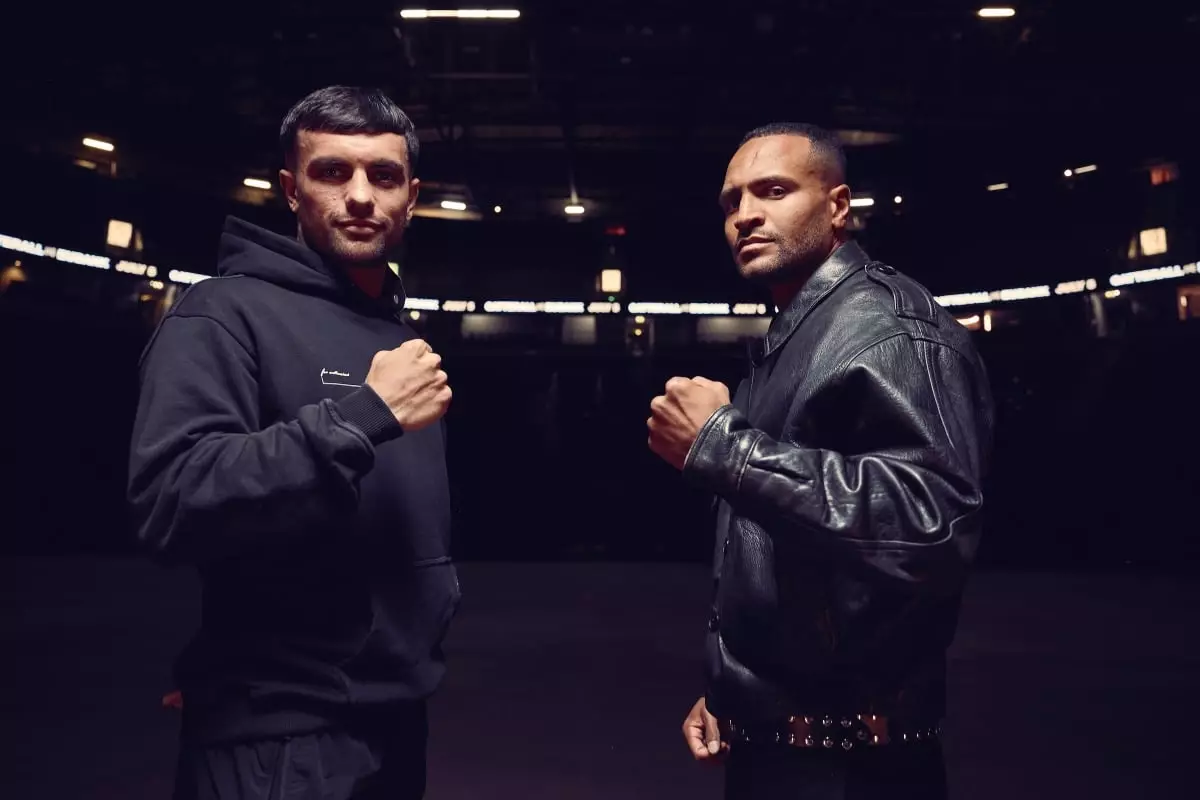In the bustling world of boxing, few matches are as anticipated as the upcoming showdown between Jack Catterall and Harlem Eubank. This fight isn’t just about two fighters stepping into the ring; it’s a strategic battle rooted in contrasting styles, career trajectories, and psychological readiness. Catterall, with a seasoned record and a history of grinding out tough victories, enters with a wealth of experience that undeniably gives him an advantage. Eubank, on the other hand, is the quintessential underdog—young, undefeated, bolstered by recent knockout power, and eager to prove himself on a bigger stage.
But beyond surface-level statistics lies the core issue: will Eubank’s raw power and hunger outweigh Catterall’s technical finesse and ring intelligence? The contest symbolizes a pivotal moment for both—Catterall trying to reaffirm his standing among elite contenders, and Eubank striving to transition from promising prospect to genuine threat.
Analyzing the Fighters: Strengths, Weaknesses, and the Battle for Control
Catterall’s career has been a testament to resilience and adaptability. His ability to box at range, utilizing sharp jab exchanges and punctuating them with calculated follow-up punches, marks him as a technically proficient boxer. His recent victory over Jorge Linares and the notable rematch win against Josh Taylor highlight his capacity to strategize and adjust under pressure. Moreover, his experience against high-caliber opponents uniquely positions him to exploit Eubank’s relative inexperience.
Conversely, Harlem Eubank’s recent knockout triumph over Tyrone McKenna revealed a critical aspect—his power potential when unleashed. Demonstrating the ability to drop McKenna three times en route to a stoppage has instantly elevated his status as a real threat. However, his earlier record, dominated by decision victories, indicates that power is a developing weapon rather than a consistent weapon. For Eubank, the challenge lies in transitioning from controlled aggression to sustained offensive pressure while avoiding the pitfalls of overextending, which could leave openings for Catterall’s counters.
Strategic Breakdowns: Paths to Victory and How the Fight Might Unfold
In my assessment, Catterall holds multiple avenues to secure victory. His typical approach—keeping opponents at bay with sharp boxing, strategic movement, and calculated body work—should serve him well against Eubank. Targeting Eubank’s midsection early might sap his offensive energy, while clever feints could draw out overcommitted shots, setting up cleaner counters. Consistent work behind the jab will be crucial; it not only scores points but also disrupts Eubank’s rhythm.
Eubank, needing to make an early impression, must seize control from the opening bell. His best shot is to come out aggressively, trying to catch Catterall off guard and leveraging his knockout power. A quick start can shift the psychological momentum and force Catterall into a more reactive game plan. However, if Eubank succumbs to wild swings or becomes predictable, he risks falling into Catterall’s calculated traps.
The fight is likely to have ebb and flow—periods of aggressive exchanges punctuated by tactical retreats. A decisive factor could be stamina and composure in the late rounds. Given Catterall’s experience, he’s better equipped to maintain consistency, potentially wearing Eubank down while avoiding the risks associated with over-aggression.
Betting Insights: Evaluating Risk and Rewards
From a betting perspective, the odds favor Catterall slightly, with a decision victory offering the most predictive value. Eubank’s underdog status and the payout for betting on him to win by decision are tempting but carry significant risk. The likelihood of this fight going the distance appears high, given both fighters’ styles and recent performances. The possibility of a knockout exists but seems less probable unless Eubank lands a perfect shot or Catterall commits an uncharacteristic mistake.
My personal conviction aligns with Catterall winning via decision. His technical mastery, combined with the depth of experience, suggests he can outsmart and outlast Eubank over the full duration of the bout. Eubank’s best chance remains an early, aggressive onslaught—if he can set a frantic pace and catch Catterall unprepared, he could swing the momentum. Otherwise, the fight likely unfolds into a strategic chess match played out over the championship rounds.
In essence, this matchup isn’t merely a test of power versus skill; it’s a war of approaches—Grit and tactical patience versus youthful aggression and raw potential. The outcome will hinge on who better executes their game plan, but I strongly believe Catterall’s seasoned approach will ultimately carry the day. Expect a close, competitive fight, but one that tilts in Catterall’s favor—demonstrating why ring IQ and experience are often the most potent weapons in a boxer’s arsenal.

